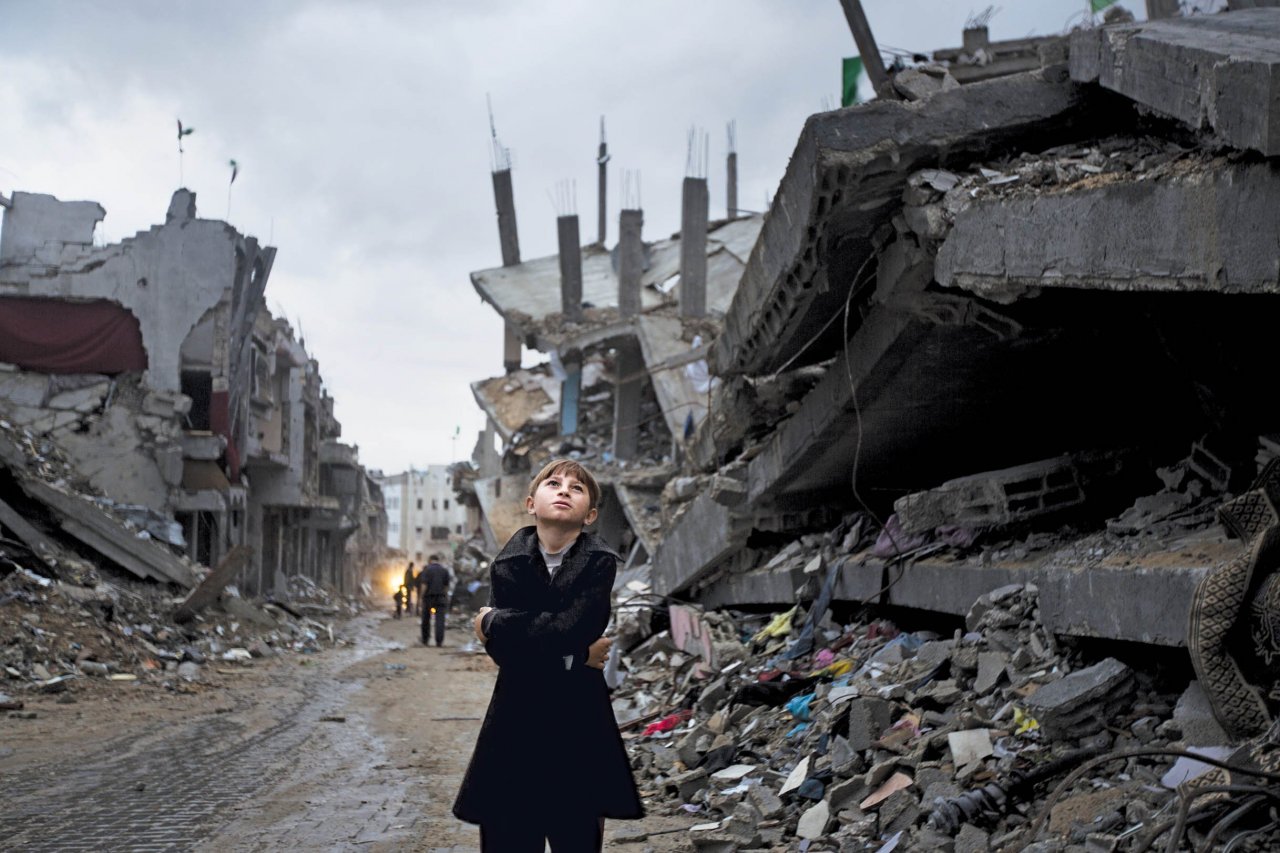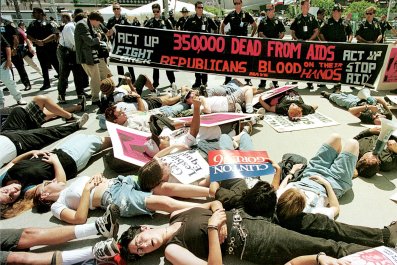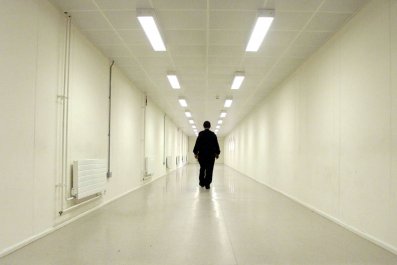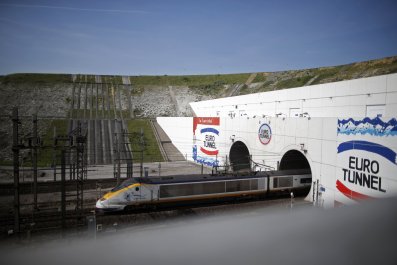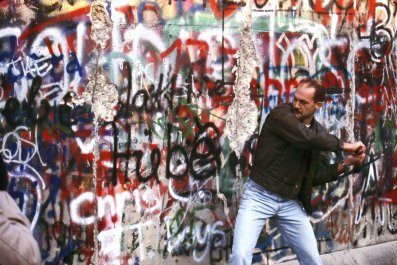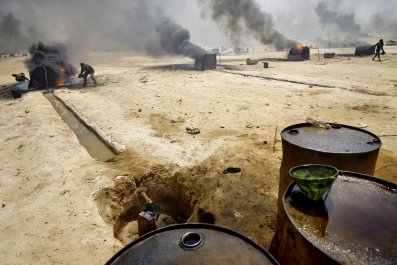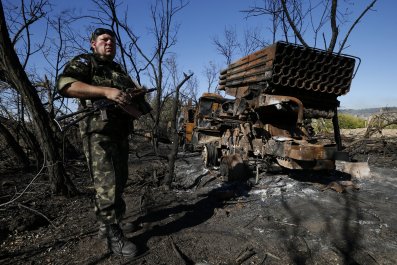The war is over; now comes the reconstruction. Slowly—actually very slowly and unsurely to boot—Gaza is starting the task of rebuilding its devastated homes and stores and schools after the summer war with Israel. But as winter approaches, and despite billions of dollars in donations and a great deal of international good will, unresolved political and regional issues are dimming any hope that there will be a quick return to normal life in the Strip.
After two weeks in which building materials for the reconstruction effort sat locked up, unused in Gaza warehouses, the United Nations finally announced a week ago that the first batches of cement, concrete, steel and bricks could be handed over to local contractors. However hesitantly, the job of rebuilding homes destroyed in the war between Israel and Hamas, it seems, has at last begun.
But it will not be easily or quickly achieved. With the Palestinian factions constantly bickering, and as relations between Israel and the Palestinian Authority continue to deteriorate, and as Egypt moves against Islamist terrorists operating near Gaza's border with the Sinai, the future for Gaza residents looks increasingly bleak.
The rulers of Gaza are not helping. While international donors and the Israelis are insisting that building materials like concrete and steel should be used only for building houses, Hamas's spokesmen are promising that they will rebuild the attack tunnels under Israeli territory that Israeli troops battled to destroy during the summer's 50-day war.
On Sunday, after mortars were fired from Gaza near the main crossing where goods are transferred into the strip, Israeli officials announced they would temporarily shut that crossing, Kerem Shalom. Hamas spokesmen denounced the closing as a violation of the ceasefire agreement, even as they reportedly sought to arrest the unidentified shooters.
And that is not the only inhibition to rebuilding Gaza's debilitated infrastructure. As the pace of reconstruction also depends on negotiations in the future between Palestinian officials, Israel and the United Nations, which serves as a facilitator, new political complications in the region suggest there is little hope that the talks will come to a successful conclusion.
Gaza is not only penned in by Israel. Egypt is reacting harshly to a car bombing on October 24 that killed at least 33 Egyptian troops in a northern Sinai town close to Gaza. Blaming Gaza radicals who cooperated with Sinai jihadists to perpetrate the terror attack, Egypt has completely shut the border crossing with Gaza at Rafah, the Palestinian town that straddles the Gaza and Egypt border. The Egyptian authorities gave Rafah residents just a few hours to pack up all their belongings and evacuate their homes before the bulldozers moved in. Nearly 900 Rafah homes have so far been razed as part of Egypt's plan to create a security buffer zone between Sinai and the Gaza Strip, with deep ditches filled with water to prevent the building of smuggling tunnels under the border.
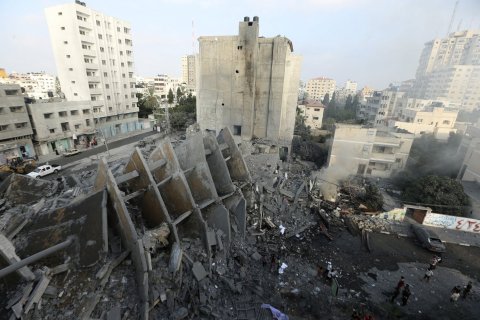
Egypt also abruptly canceled a long-planned meeting it was to host in Cairo a week ago between Israeli and Palestinian officials designed to agree to the long-term arrangements to rebuild and pacify Gaza. A new date for the talks has yet to be fixed.
The Cairo meeting was also meant to settle some outstanding internal Palestinian issues that stand in the way of a lasting settlement with Israel and the return of permanent peace to the Strip. The Western-backed Palestinian Fatah party has, controversially, formed a "government of national consensus" with the terrorist group Hamas, but the two Palestinian factions have yet to finalize any details of how the two competing wings will cooperate in the uneasy coalition. Constant squabbling between the two Palestinian factions is the reason the release of building materials was delayed, U.N. diplomats say.
Tensions at the heart of the Palestinian camp are unlikely to ease anytime soon. "Even if [the canceled] Cairo talks between Fatah and Hamas were to have taken place, it's likely that they would have quickly reached a dead end. They're very far apart on many issues," said an official who closely follows the situation.
Yet despite the lack of progress and the continuing turmoil in Gaza, international good will toward the Palestinians remains high. On October 15, Secretary of State John Kerry, U.N. Secretary General Ban Ki-moon and a number of foreign ministers from neighboring countries met in Cairo, where $5.4 billion was raised to rebuild Gaza. At least 18,000 homes, including some high-rise apartment buildings, and a great deal of infrastructure were destroyed when Israeli forces tried to degrade and destroy Hamas's military capabilities. Many of those who attended the Cairo summit stressed the importance of a brisk recovery in Gaza if more humanitarian suffering and a return to war are to be avoided.
A day before the Cairo gathering, Israel delivered 200 metric tons of concrete and steel bars to Gaza (with a further 150 tons delivered a week ago.) Then came the delays, with most of the building materials left untouched in warehouses for two weeks.
Israel vehemently insists that all Gaza building materials must be accounted for if the reconstruction effort is not to be hijacked by those who want to use the materials for renewing their preparations for the next war. Israel wants every project to be assigned an authorized vendor of building supplies and the civilian nature of each project to be verified by the Palestinians, the Israelis and U.N. officials.
Before and during the summer's war in Gaza, Jerusalem repeatedly accused international donors of being too lax when supervising building efforts, a state of affairs that allowed building materials to bolster and fortify Hamas's military capabilities through the construction of tunnels and bomb-proof command centers.
According to sources in Jerusalem and at the U.N., Israel is eager for Gaza's civilian infrastructure to be rebuilt fast, not only for humanitarian reasons but on the assumption that only a stable Gaza can be a peaceful neighbor. "Israel will oppose, as should the international community, all attempts by Hamas and other terrorist groups to rearm and rebuild the terror machine," said Prime Minister Benjamin Netanyahu's spokesman, Mark Regev. Nevertheless, he said, "when it comes to the civilian population, Israel fully supports international efforts to bring humanitarian relief and rebuild."
So far so good. To date, neither the Israeli government nor the Ramallah-based Palestinian Authority have filed any complaints about violations of the deal that brought an end to the war, said Nicole Ganz, spokeswoman for the U.N. special coordinator for the Middle East peace process, whose Jerusalem-based office is charged with overseeing the implementation of the Israeli-Palestinian agreements to rebuild Gaza.
There are other signs of slowly returning normality. Public officials in Gaza, who have not been paid since the spring, are starting to receive their money. Two days before the warehouses started releasing building materials, on October 28, Ban's spokesman Stephane Dujarric said the U.N. had "assisted in the delivery of a humanitarian assistance payment to civil servants in Gaza today, excluding the police and other security services," and he thanked Qatar for providing the funds. Diplomats say the two events may have been linked, as Hamas officials insisted that their salaries be paid before they would authorize the release of building materials.
The money paid to Hamas officials has long been a bone of contention between Hamas and the Palestinian Authority, and the issue is yet to be permanently resolved. The issue is complicated by Hamas officials boasting that they would immediately start rebuilding attack tunnels under Israel. Hamas military wing Izzadin Kassam's "shovels continue to dig tunnels after the war," al-Resalah, a Hamas-linked website, reported recently.
Hamas fighters were quoted proudly declaring that some of the tunnels destroyed by Israel in the summer have already been rebuilt. If this is true, Israel's defense minister, Moshe Yaalon, warned Ban a week ago in New York, Israel will immediately halt all deliveries of construction materials to Gaza.
Yet whatever Hamas agents may like to say, their ability to redeploy materials from home building to constructing tunnels is being severely hampered. Egypt's anti-terror operation in Gaza's southern tip promises to put a stop to much of the illicit smuggling through tunnels under the Egyptian-Gaza border that has in the past provided a great deal of Hamas's funding and allowed unauthorized materials, goods and weapons to be delivered to Gaza.
Now, "if a smuggler enters one of those tunnels in Gaza, he may find out that the Egyptian end had been blocked, or, worse, he may find himself surrounded...by Egyptian soldiers," said a source in the region.
Gazans have started to understand that their political leaders, their neighbors and perhaps even their faraway donors are not in a position to provide them with shelter before winter sets in. Frustration and resentment is sure to fester and deepen so long as their wretched plight continues.



